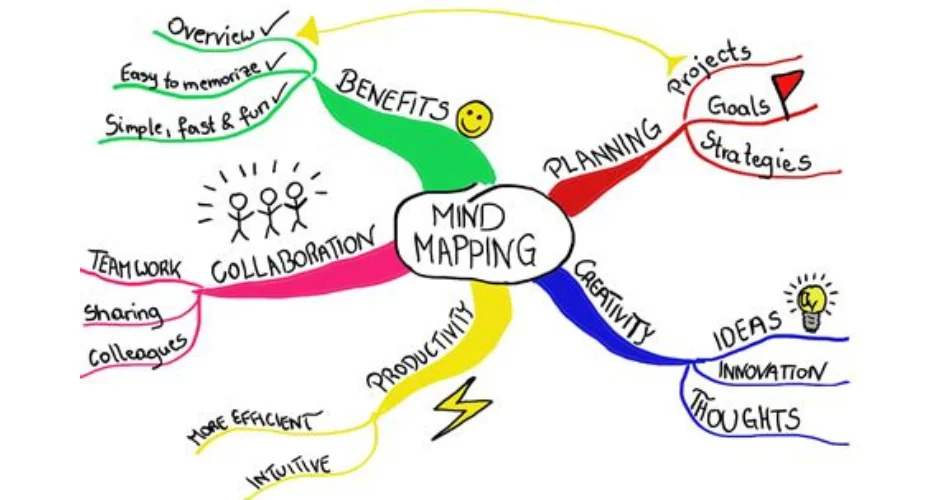GUEST POST
The Science Of Effective Revision

Revision is an essential part of succeeding in exams. However, most people vary in how they revise and what's best for them but there are some ways of revising which are scientifically proven to be more effective than others as listed below. Hopefully, the 10 tips below will give you some insight into how best to invest your revision time.
1. Limit distractions
This one seems obvious but so many people don’t do it under the disguise of helping motivate them to study or do the required work.
Having TV, music, conversations in the background of your revision will stop you from focusing your full attention on the material. The only exception should be very low-key ambient, relaxing music or nature sounds. It's best to get used to separating the activities of work and leisure. It will help you so much in the long run as Sherpa mentions in another blog.
A study (Perham & Currie, 2014) found that students who studied in silence or listened to music with no lyrics performed up to 60% better in exams than students who listened to music with lyrics. Moreover removing distractions while learning can improve performance by 25%! (Blasiman et al., 2018)
So in the future stick to ambient music or silence, keep your phone and its distractions away and try to study somewhere you won’t be disturbed.

2. Plan Ahead!
It’s best to have a plan in mind when you start revising. This should involve when you revise, where you’re revising and what you’re revising.
Remember to be specific about what you’re revising not just ‘Physics’ but ‘electromagnetism’. This stops you wasting your time on deciding what you should do or getting things you need afterwards.
Remember not just to plan each session before but your whole day in ‘interleaving’ topics. This means mixing up the content you revise each day and avoiding doing the same topic or subject all day.
That doesn't mean you should only revise each topic once. You should definitely factor in revisiting weak topics every few days or weeks in order to level up your knowledge in time for exams. Because of this, you may want to assess yourself (honestly!) about where you are in terms of confidence in each subjects topics so you can predict which topics will take more sessions to learn than others.
A good way to do this is to make a retrospective timetable that you can update throughout the year and track revision sessions. Just like a to-do list, it can be super satisfying ticking off sessions once you get it set up so I highly recommend you do it and stick to it as best you can. You can read about how to make one in another blog on revision tips here.

3. Don’t Just Reread Old Notes
When revising a topic it is tempting just to reread the notes you already have on a topic. However, this is not the best way to revise as you are likely to just forget it again afterwards. Therefore you have to engage with the material, but what does that mean?
Engaging in the material not only means reading over it but actually understanding it. Being able to rewrite notes in your own words from memory is a good way to do this but can be time-consuming and a bit boring!
As another example, if you have just read a chunk of text that explains a process, can you make a diagram of that process? Can you explain it in a completely different way? Can you teach it to someone else? Can you make a song or rhyme about it?
Therefore try to explain concepts in your own words and diagrams!

4. Space Out Your Revision Sessions
Although cramming is sometimes necessary in last-minute situations, you should realise early on that it is not ideal for effective revision. It tends to fall right out your head as soon as the factor of exam stress and fatigue sets in. The key to remembering content for the exam is to repeatedly cover it after a break of a day or so.
This means that instead of doing the whole of one topic in one day it’s better to spend an hour every few days on a topic. This gives you time to forget little bits about the topic which you can remind yourself of when you revise again. Psychologists have shown that spaced revision is more effective for 90% of people (Kornell, 2009)!

5. Visualisation
The ‘Method of Loci’ or ‘Memory Palace’ technique is a method of memory enhancement which uses familiar visual environments such as your bedroom, your front door, your walk home or the face of a clock etc to remember key bits of information.
Importantly this is a place or journey that you already know very well. Then each ‘stop’ in this visual journey (e.g. the furniture in your bedroom, the landmarks you pass on your walk home or the numbers on the clock) is linked to a bit of information about the topic.
For example at number 12 on the clock, you may remember the first step in the DNA sequencing process. This technique is a favourite of world record memory holders and neuroscientists as spatial location and memory work in the same part of the brain!

Derren Brown, the illusionist also has a couple of examples he explains in the YouTube video below. He famously uses this method to baffle the public into believing he is using some sort of magic, but he confesses a lot of it is a clever application of this technique.
6. Active Recall
One of the best revision techniques is something called active recall. This is where you try to remember something without having any prompts. This means you're actively trying to remember it by yourself.
This can be done with flashcards with a prompt such as ‘respiration equation’ or ‘the battle of Hastings’ and the answer on the other side. When you see the prompt you actively try and recall what's on the other side of the card and then check it.
Another technique that involves active recall is called ‘blurting’. This is when you write down everything you remember about a particular topic and then see which bits you missed out and look over them. Active recall not only allows you to see what you do and don’t know but also allows you to practise remembering that information.
Just like any other activity, practice makes you better, thus making it easier and faster to remember this information by strengthening connections in your brain (Roediger & Butler., 2010).

7. Look At The Bigger Picture…
Another way you can actively engage with your notes is by seeing how the topics link together and what is similar and different about them. The easiest way to do this is through the use of a mindmap. This is the perfect way to test your overall knowledge of a topic and can be easily filled out to test your memory and understanding of the links between areas of subject.
This is actually similar to how your brain makes memories and connects them together. That's why the 'Method of Loci' works so well as it attaches ideas to areas that are already very strong in your memory.
Making a mind map gives you an overview of all the topics you are looking to cover, helping you to organise your revision and also giving you a picture of what is similar. Some studies have found that when making mind maps 80% of students are able to understand concepts in science better (Cunningham., 2005).

8. Testing
Testing is hands down the most effective form of revision. Not only does it use active recall as previously mentioned, but it also gives you practice in how to answer the exam. Practice timing your exam and you can mark it and adjust your revision or answers accordingly.
Feed the results of these periodic tests back into your revision plan to highlight areas you have no idea how to answer as well as commit less time to those that you know like the back of your hand. Testing should make up the bulk of your revision especially when you come closer to the exam. It's much better to revise for an exam by covering the topics in the same way that you will be tested.
If you are looking for specific exam-style questions on a certain topic you need to focus revision on, consider using free resource websites like PMT as they have worksheets broken down by topic so you can really work at a specific area until you understand it.

9. Sleep
Sleep is an often underrated factor in effective revision. When a group of people study a subject they perform better after they have slept even if they have had more time to forget the information (Potkin & Bunney., 2012)!
Did you know that this is because in our sleep we go over our memories making them stronger? That means when we sleep badly some of the revision we have done is more likely to be forgotten! So skip a long night revising and aim to get 8 hours of sleep instead!

10. Don’t Revise for Too Long!
We all know someone who said they spend hours revising every night. However, this doesn’t always mean they’re better off because of it. Many people have short attention spans that max out at around 30 minutes.
The Pomodoro technique is ideal for revision productivity, this is where you work for 25 minutes, take a 5-minute break and repeat. This is good as it allows you to retain attention for the full 25 minutes, gives structure to your revision routine and avoids procrastination. Sherpa has an excellent blog outlining all the benefits behind it and an in-depth detail
Even if you don’t use the Pomodoro technique, remember to take breaks! This, just like sleep, allows our brains to process and replay what we have just learned.

Overall, all these methods are good, however, you have to find what works best for you! Some people love mindmaps but don’t like trying to teach someone else and vice versa. One thing is for certain though, when revising it is essential to take care of yourself.
This can be done by taking breaks, getting enough sleep and doing things you enjoy. Too much revision and not enough downtime can lead to burnout which can stop you from achieving more. I hope these 10 tips have been helpful! Good luck with your revision!
Parents
Students

Tabitha G
Tutor
Experienced Psychology, Biology and Neuroscience tutor- at all levels!
Looking for a tutor?
Sherpa has hundreds of qualified and experienced UK tutors who are ready to help you achieve your goals. Search through our tutors and arrange a free 20 minute introduction through our industry-leading online classroom.
Find a TutorSimilar Articles



